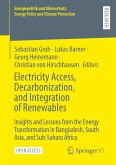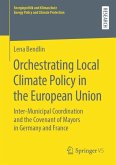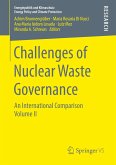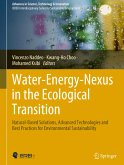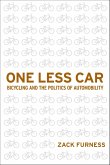Cognitive-strategic capabilities of a country are decisive for overcoming the strong path dependence in climate-related policies and to achieve ecological and economic modernization. This is the result of a unique comparison approach focusing on four highly intertwined policy areas (Automobiles, Nuclear Energy, Renewables and Rare Earth) in Japan and Germany. Both countries have in principle sufficient economic, technological and institutional capacities for an ecological transformation, but they are lacking an integrated policy strategy to mobilize and organize the existing capacities in favor of structural changes. The focused four policy areas are analyzed in depth and compared by experts from political science.
Bitte wählen Sie Ihr Anliegen aus.
Rechnungen
Retourenschein anfordern
Bestellstatus
Storno


